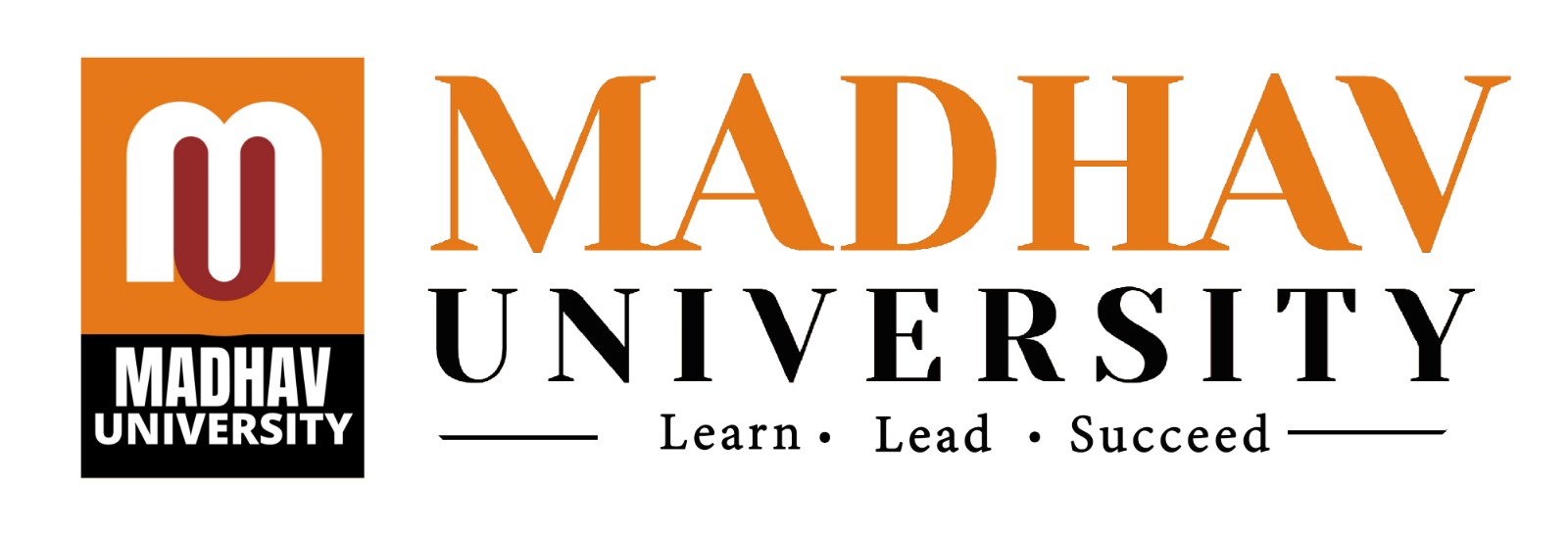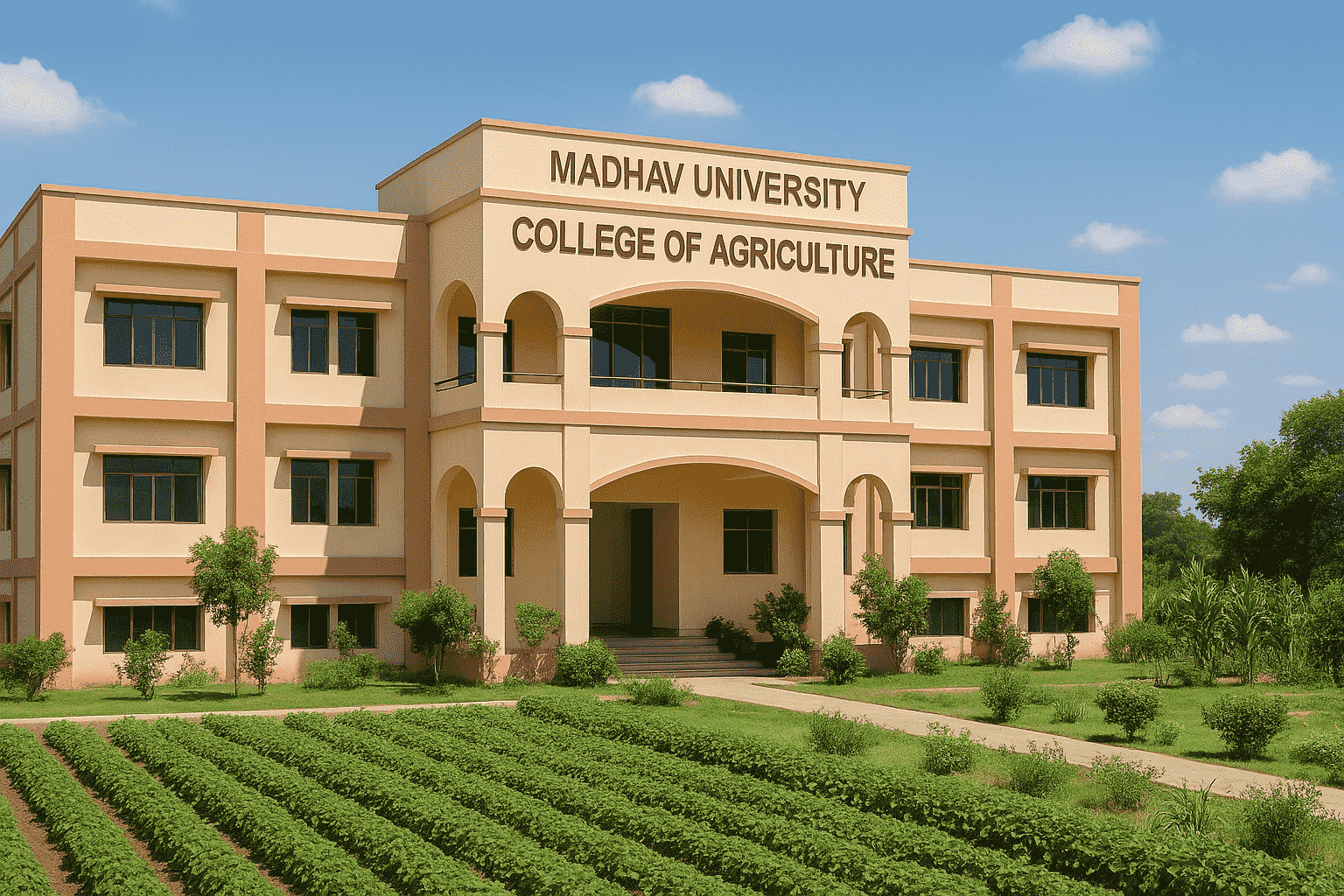Established in 2014, the College of Agriculture has emerged as a leading institution dedicated to nurturing future agricultural professionals. Over the years, the college has successfully graduated six batches, comprising approximately 487 students who have completed the Bachelor of Science (Hons) Agriculture degree program. This achievement underscores the college’s commitment to providing high-quality education and training in the field of agriculture.Recognized by the Rajasthan State Agricultural Department, the College of Agriculture offers a robust academic framework designed to equip students with the knowledge and skills necessary for success in various agricultural sectors. Admission to the college is facilitated through the Joint Entrance Test (JET), conducted by Rajasthan State Agricultural Universities, ensuring that only the most qualified candidates are selected for this esteemed program.
The curriculum at the College of Agriculture is meticulously crafted in accordance with the recommendations of the Dean’s Committee of the Indian Council of Agricultural Research (ICAR), New Delhi. This alignment with national standards ensures that students receive a comprehensive education that is both relevant and rigorous. The college offers a range of programs, including Diploma in Agriculture, B.Sc. (Hons.) Agriculture, M.Sc. (Agriculture), and Ph.D. (Agriculture), catering to diverse academic and professional aspirations within the agricultural domain.As the college continues to grow and evolve, it remains steadfast in its mission to foster innovation, research, and practical skills among its students. With a focus on sustainability and modern agricultural practices, the College of Agriculture is poised to make significant contributions to the agricultural landscape of Rajasthan and beyond.
Advancing Agricultural Education: A Commitment to Knowledge, Innovation, and Sustainability
In an era where the challenges facing global food systems, environmental stewardship, and rural development are becoming increasingly complex, the College of Agriculture stands at the forefront of addressing these issues. Our dedication to advancing knowledge, innovation, and sustainable practices in agricultural sciences is unwavering. We recognize that the future of agriculture depends on well-prepared leaders and professionals who are equipped to navigate the intricacies of modern agricultural challenges.
At the heart of our educational philosophy is a commitment to hands-on learning experiences. We believe that true understanding comes from engaging directly with the land, crops, and communities that define our agricultural landscape. Through practical training and community engagement, we empower our students to develop a deep understanding of agricultural systems, fostering their ability to create positive change in their communities and beyond.
Our vision is clear: to be a leading institution in agricultural education and research, recognized for our commitment to sustainability, innovation, and excellence. We strive to cultivate an environment where students are encouraged to think critically, challenge the status quo, and explore new frontiers in agricultural science. By integrating cutting-edge research with practical applications, we prepare our graduates to lead in an ever-evolving field.
Collaboration is key to our mission. We actively engage with local and global communities, recognizing that sustainable agricultural practices require a collective effort. By partnering with farmers, industry leaders, and academic institutions worldwide, we create a dynamic network that enhances learning opportunities and promotes the sharing of knowledge and resources.
Faculty Excellence: A Pillar of Our Agricultural Education
At the College of Agriculture, we take immense pride in our distinguished faculty, comprised of well-experienced and highly qualified professionals. Our team includes Professors, Associate Professors, and Assistant Professors who have earned their credentials from prestigious institutes across India. This diverse and accomplished faculty is dedicated to fostering an enriching learning environment that empowers students to excel in the field of agricultural sciences.
Our faculty members bring a wealth of knowledge and expertise to the classroom, with many holding advanced degrees such as Ph.D.and possessing qualifications like the National Eligibility Test (NET). Their academic backgrounds are complemented by extensive research experience and practical involvement in various agricultural sectors. This unique blend of theoretical knowledge and real-world application enhances the educational experience for our students.Beyond their impressive qualifications, our faculty members are passionate educators committed to student success. They employ innovative teaching methodologies that promote active learning, critical thinking, and problem-solving skills. By mentoring students through research projects, internships, and hands-on experiences, our faculty guide the next generation of agricultural leaders in their academic and professional journeys.
Our faculty are not only dedicated teachers but also active researchers contributing to advancements in agricultural science. They engage in cutting-edge research projects that address pressing issues such as sustainable farming practices, food security, and environmental conservation. By involving students in their research initiatives, they foster a culture of inquiry and innovation that is essential for tackling contemporary agricultural challenges.
The diverse backgrounds of our faculty create a rich tapestry of knowledge and perspectives. They collaborate with industry partners, government agencies, and international research institutions, providing students with unique opportunities for networking and professional development. This interconnections ensures that our graduates are well-prepared to thrive in a competitive global agricultural landscape.
- Academic Programs:
- Diploma in Agriculture (3 year)
- B.Sc. (Hons) Agriculture (4 year)
- M.Sc. (Agriculture) in Agronomy, Entomology, Genetics and Plant Breeding, Horticulture (2 year)
- Ph.D. (Agriculture) in Agronomy, Entomology, Genetics and Plant Breeding, Horticulture (3 year)
- Facilities and Resources:
- Well-equipped laboratories
- Smart classrooms
- Library
- Language lab
- Sport complex (indoor &outdoor)
- Boys common room
- Girls common room
- Farm (Animal husbandry, Orchard, Net house/polyhouse, Poultry unit, Bio-gas plant, Instruction & Experimental unit, Vermicompost & Organic farming unit, Crop cafeteria)
- Farmer’s training centre
- Hostel accommodation (separate for boys & girls)
- Transport facility
Possible Scopes:
The Bachelor of Science (Hons.) in Agriculturedegree in India offers a wide range of career opportunities and potential for further studies. The scope of this degree is vast, given the importance of agriculture in India’s economy and the increasing focus on sustainable practices and technological advancements in the field. Here are some potential scopes and career paths for graduates:
- Government Jobs
- Agricultural Officer: Work with state or central government departments to implement agricultural policies and programs.
- Research Scientist: Join research institutions like Indian Council of Agricultural Research (ICAR) for research roles.
- Extension Services: Work in rural development and agricultural extension services to educate farmers about best practices.
- Private Sector Opportunities:
- Agri-Business Management: Roles in management positions in agribusiness firms, dealing with production, marketing, and distribution.
- Seed and Fertilizer Companies: Positions in sales, marketing, or research and development within companies producing agricultural inputs.
- Food Processing Industry: Opportunities in quality control, production management, and supply chain management.
- Entrepreneurship:
- Start Your Own Venture: Opportunities to start businesses related to organic farming, agro-tourism, or agritech startups focused on innovative solutions.
- Consultancy Services: Providing expert advice to farmers and businesses on agricultural practices, pest management, and resource optimization.
- Research and Development:
- Academic Research: Pursue a master’s or Ph.D. in specialized areas of agriculture, leading to careers in academia or advanced research roles.
- Biotechnology Firms: Work in RD departments focusing on genetically modified organisms (GMOs), crop improvement, and sustainable practices.
- International Organizations:
- Opportunities to work with organizations such as the Food and Agriculture Organization (FAO), World Bank, or various NGOs focused on agricultural development and sustainability.
- Teaching and Academia:
- After pursuing further studies (M.Sc., Ph.D.), graduates can take up teaching positions in colleges and universities.
- Agricultural Journalism and Communication:
- Engage in writing, reporting, or broadcasting about agricultural issues, innovations, and policies.
- Technical Roles:
- Positions in soil conservation, irrigation management, pest control, and crop management with various agricultural departments or private firms.
- Sustainable Agriculture:
- Focus on organic farming practices, agroecology, and sustainable resource management for environmental conservation.
- Government Schemes and Policies:
- Work with government initiatives aimed at improving agricultural productivity, rural development programs, and food security measures.
In conclusion, the College of Agriculture stands as a beacon of excellence in agricultural education, committed to shaping the future of agriculture through quality teaching, research, and community engagement. As it looks ahead, the institution is dedicated to producing skilled graduates who will drive progress and innovation in the agricultural sector.As we continue to advance knowledge and foster innovation in agricultural sciences, we remain committed to preparing the next generation of leaders who will address the pressing challenges of our time with creativity and determination. Together, we can cultivate a more sustainable and resilient agricultural future for all.
– Dr. V. R. Patel
Dean, College of Agriculture, Madhav University, Pindwara, Rajasthan

